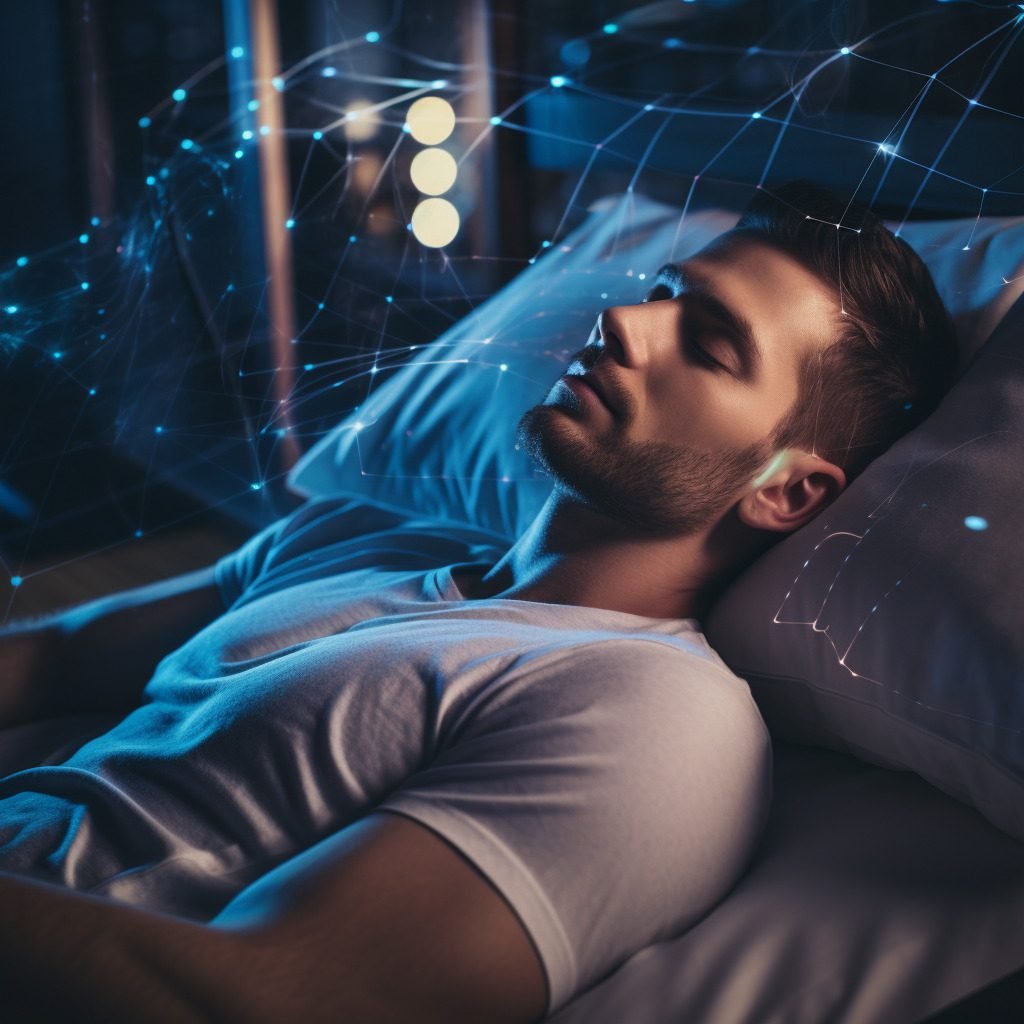
Biohacking Sleep Technology: How to Hack Your Sleep for Optimal Performance
Introduction
In the ever-evolving field of health and fitness, a fascinating concept making waves is biohacking. Biohacking involves using technology, lifestyle modifications, and innovative techniques to optimize one’s lifestyle, health, and overall well-being. Sleep, being a fundamental pillar of health, is a key area where biohacking can have a significant impact. In this article, we will explore the world of biohacking sleep technology and how it can help you achieve optimal performance.
Key Concepts of Biohacking Sleep Technology
Biohacking sleep technology encompasses a range of concepts and strategies aimed at improving the quality and quantity of your sleep. Let’s take a look at some key concepts in this field:
1. Sleep Tracking
One of the foundations of biohacking sleep technology is the ability to accurately monitor and track your sleep patterns. Wearable devices, such as smartwatches or sleep trackers, can collect data on your sleep duration, stages, and quality. This information allows you to identify any disturbances or areas for improvement in your sleep routine.
2. Light Optimization
Light exposure plays a crucial role in regulating our sleep-wake cycles. Biohacking sleep technology emphasizes the optimization of light exposure to align with our natural circadian rhythms. This includes reducing exposure to blue light emitted by electronic devices before bed, using smart lighting systems that mimic natural sunlight, and maximizing exposure to natural light during the day.
3. Sleep Environment
Creating an optimal sleep environment is another aspect of biohacking sleep technology. This includes ensuring a cool and dark bedroom, minimizing noise disruptions, and using comfortable bedding and pillows. Additionally, utilizing white noise machines, aromatherapy, or blackout curtains can further enhance the sleep environment.
4. Sleep Hygiene
Biohacking sleep technology emphasizes the importance of practicing good sleep hygiene. This involves establishing a consistent sleep schedule, implementing relaxing pre-sleep routines, and avoiding stimulants like caffeine or alcohol close to bedtime. By adopting healthy sleep habits, you can optimize your sleep quality and make the most of your restorative sleep cycles.
5. Sleep Supplements and Technology
Supplements and technology can complement biohacking sleep technology efforts. Melatonin supplements, for example, can help regulate sleep-wake cycles, while smart beds and mattresses can adjust to your body’s needs for maximum comfort. Additionally, techniques such as brainwave entrainment or meditation apps can facilitate relaxation and deep sleep.
Practical Biohacking Tips
Now that we’ve covered the key concepts, let’s delve into some practical tips to incorporate biohacking sleep technology into your daily routine:
- Establish a Consistent Sleep Schedule: Go to bed and wake up at the same time every day, even on weekends, to regulate your body’s internal clock.
- Create a Sleep-Friendly Environment: Ensure your bedroom is cool, dark, and quiet. Invest in a comfortable mattress, pillows, and bedding to optimize your sleep environment.
- Limit Screen Time Before Bed: Reduce exposure to blue light from electronic devices at least one hour before bedtime. Consider using blue light-blocking glasses or apps that filter out blue light to protect your sleep quality.
Practice Relaxation Techniques: Incorporate relaxation techniques such as meditation, deep breathing exercises, or gentle stretching before bed to promote relaxation and prepare your body for sleep.
Avoid Stimulants: Minimize or eliminate the consumption of caffeine, nicotine, and alcohol, especially in the evening, as they can disrupt sleep patterns.
Biohacking FAQs
Question 1: Can biohacking sleep technology cure insomnia?
– Answer: Biohacking sleep technology can certainly help improve insomnia symptoms by focusing on optimizing sleep quality and implementing healthy sleep habits. However, it’s essential to consult with a healthcare professional for a comprehensive evaluation and personalized treatment plan.
Question 2: Are sleep trackers accurate in measuring sleep quality?
– Answer: Sleep trackers provide valuable insights into sleep duration and patterns. While they may not be 100% accurate, they offer a helpful overview of your sleep habits. It’s important to use sleep tracker data as a reference point and not solely rely on it for diagnosis or treatment.
Question 3: Can biohacking sleep technology benefit shift workers?
– Answer: Yes, biohacking sleep technology can be particularly beneficial for individuals with irregular sleep schedules, such as shift workers. By implementing strategies like light optimization, sleep hygiene practices, and personalized sleep routines, shift workers can improve the quality and duration of their sleep.
Question 4: Is it necessary to use sleep supplements for biohacking sleep technology?
– Answer: While sleep supplements can be helpful for some individuals, they are not essential for biohacking sleep technology. It’s always best to prioritize healthy sleep habits, such as maintaining a consistent sleep schedule and creating a sleep-friendly environment, before considering supplements.
Question 5: Can biohacking sleep technology replace medical treatment for sleep disorders?
– Answer: Biohacking sleep technology should not replace medical treatment for diagnosed sleep disorders. If you suspect you have a sleep disorder, it’s crucial to consult with a healthcare professional who specializes in sleep medicine for a proper evaluation and personalized treatment plan.
Conclusion
Biohacking sleep technology offers a revolutionary approach to optimizing your sleep for optimal performance. By implementing concepts like sleep tracking, light optimization, and sleep hygiene practices, you can enhance the quality and duration of your sleep. Remember, however, that this content is for informational purposes only and should not substitute medical advice. Exploring the intriguing world of biohacking may lead you to discover personalized strategies that will transform your sleep and contribute to your overall health and well-being. Sweet dreams!


